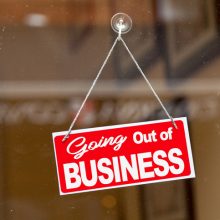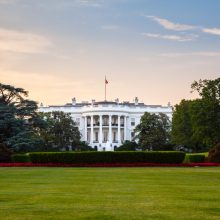Public Seminar: How Taxpayers are Picking Up the Bill for the Destruction of Local Restaurants
November 30, 2020 — Economic Liberties’ State and Local Policy Director Pat Garafolo published a piece in Public Seminar, explaining how “ghost kitchens” and predatory online platforms threaten the future of small businesses like restaurants.
The New Money Trust: How Large Money Managers Control Our Economy and What We Can Do About It
November 24, 2020 - Authored by Senior Fellow Graham Steele,"New Money Trust" details the growing dominance of the Big Three asset management funds – BlackRock, Vanguard, and State Street – and illustrates the concerning implications of their power, which include more anticompetitive behavior, more systemic risk, and distorted corporate governance.
Marker: The Death of the $15 Salad
November 10, 2020— In an op-ed for Marker, Economic Liberties’ Senior Fellow Moe Tkacik explained how fast-food chains controlled by big tech companies have solidified their market dominance at the expense of independent restaurants.
New York Times: The Case Against Google
October 22, 2020 — The New York Times featured a piece by Economic Liberties’ Research Director Matt Stoller that explains Google and Facebook’s profit model and the ways the advertising duopoly undermines the free press.
The Guardian: A US antitrust suit might break up Google. Good – it’s the Standard Oil of our day
October 21, 2020 — The morning after the Department of Justice filed its historic antitrust case against Google, Economic Liberties’ Executive Director Sarah Miller broke down the case, explaining its importance and what comes next.
Biden Administration Must Be Diverse and Independent From Corporate Interests, 35+ Groups Say
October 20, 2020 — Today, 38 national organizations sent a letter to the Biden campaign urging them to establish hiring criteria that will strengthen the diversity and effectiveness of the federal workforce and ensure presidential appointees are independent from Wall Street and corporate monopolies.






